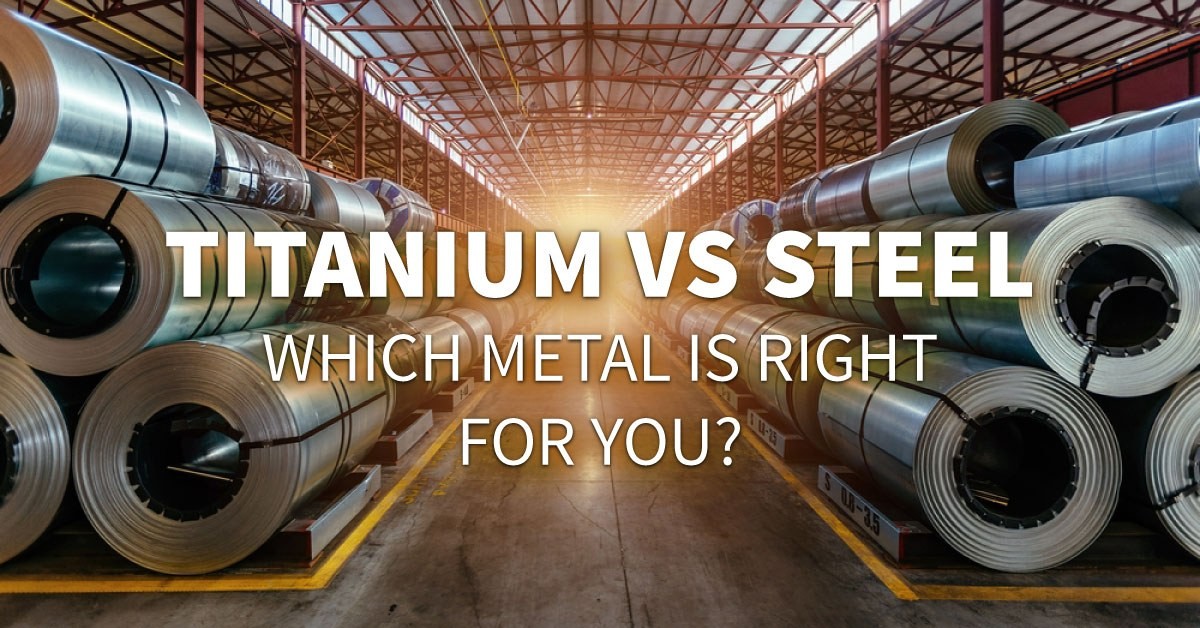Titanium boasts a higher strength-to-weight ratio than steel, making it the champion for applications needing stronger yet lighter materials, particularly in the aerospace industry. However, determining which metal is definitively “stronger” isn’t straightforward. This article delves into the complexities of titanium vs. steel strength, examining their properties, limitations, and best-use cases to help you choose the right material for your project.
Titanium vs. Steel: A Strength Showdown
Both titanium and steel are renowned for their durability and ability to withstand high-stress environments. While some steels, like 17-PH stainless steel, might surpass certain titanium grades in tensile strength and hardness, titanium generally offers superior strength relative to its weight.
The “strength” of a material can be assessed through various tests:
- Tensile Strength: Measures the maximum stress a material can withstand before breaking.
- Yield Strength: Measures the stress at which a material begins to permanently deform.
- Hardness: Measures a material’s resistance to indentation and scratching.
Understanding Titanium’s Properties
Titanium, a naturally occurring element, was first identified in 1791. Its modern production methods, developed in the 20th century, involve complex processes to extract and refine the metal.
Titanium exists in various forms, including commercially pure (CP) titanium and titanium alloys. CP titanium excels in corrosion resistance, while titanium alloys are favored for high-strength applications in aerospace and medical implants. Key properties include:
- High Strength-to-Weight Ratio: Titanium offers exceptional strength for its relatively low weight.
- Corrosion Resistance: Titanium resists corrosion exceptionally well, even in harsh environments.
- Biocompatibility: Titanium is highly biocompatible, making it suitable for medical implants.
Exploring Steel’s Properties
Steel, an alloy of iron and carbon with a history spanning millennia, is produced by smelting iron ore and then refining it to achieve the desired carbon content. Alloying elements like manganese, chromium, and nickel can be added to enhance specific properties.
Steel’s properties include:
- High Strength: Steel offers high tensile and yield strength.
- Workability: Steel is relatively easy to work with and fabricate.
- Cost-Effectiveness: Steel is generally less expensive than titanium.
Key Differences: Titanium vs. Steel
- Composition: Steel is an alloy, while titanium is a chemical element.
- Density: Steel is denser than titanium.
- Corrosion Resistance: Titanium generally exhibits superior corrosion resistance.
- Cost: Titanium is typically more expensive than steel.
- Biocompatibility: Titanium is more biocompatible.
Titanium’s Strength Advantage: Weight-to-Strength Ratio
While steel often boasts higher absolute strength, titanium’s lower density gives it a significant advantage in strength-to-weight ratio. This makes titanium crucial for applications where minimizing weight while maintaining strength is paramount, like in aerospace and sporting goods.
Steel’s Strength Variations
Steel’s strength varies widely depending on its composition and processing. High-strength, low-alloy steels often exceed titanium in tensile and yield strength. However, tool steels, known for hardness and wear resistance, can be prone to overheating. Stainless steel prioritizes corrosion resistance over absolute strength.
Commercial Considerations: Titanium vs. Steel
Titanium’s scarcity, complex extraction process, and high demand contribute to its higher cost compared to steel. This can impact its commercial viability for certain applications.
Choosing Between Titanium and Steel
The optimal choice hinges on the specific application requirements. Consider these factors:
- Cost: Steel generally offers better cost-effectiveness.
- Strength Requirements: Steel may be preferable for absolute strength, while titanium excels in strength-to-weight ratio.
- Weight Sensitivity: Titanium is the clear choice when weight is a critical factor.
- Corrosion Resistance: Titanium offers superior corrosion resistance.
- Biocompatibility: Titanium is essential for medical implants and other biocompatible applications.
When to Choose Titanium
Titanium shines in applications demanding lightweight, corrosion-resistant, biocompatible, and high-temperature resistant materials. Aerospace, medical devices, and chemical processing are prime examples.
When to Choose Steel
Steel is often preferred when cost-effectiveness, ease of fabrication, and a wider range of alloy options are paramount. Construction, automotive, and heavy machinery industries frequently rely on steel.
Finding the Right Materials Partner
Selecting the optimal material for your project requires careful consideration of various factors. Partnering with a materials expert can provide invaluable guidance in navigating these complexities. Ulbrich offers comprehensive materials evaluation and collaboration to help you identify the ideal solution for your needs. Contact us today to learn more.


